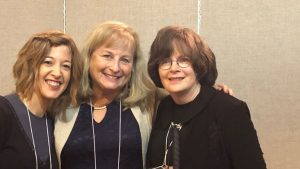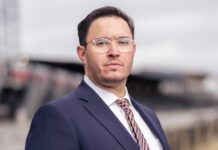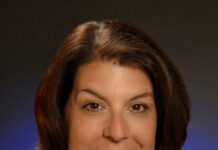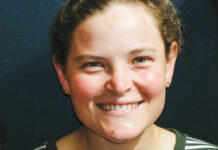Every person was created by God and has a piece of God in them. Everyone is worthy.”

This is what Yael Zelinger, the day school liaison for Jewish Educational Services, said she strives to teach students through disability awareness programs.
Zelinger’s work involves reaching out to schools and listening to what their needs are. Recently, this has involved helping to organize a New Teacher Cohort. Each month the cohort meets and has an educational session with a presenter who provides expert advice to help the teachers best help their students.
“The New Teacher Cohort provides a safe space for new teachers to learn practical strategies for use in their classrooms, based on the challenges they bring up in our meetings. It allows them to be vulnerable so they can ask and learn in a non judgmental environment,” Zelinger said.
Another way JES is supporting teachers is through a monthly teacher appreciation initiative, which helps teachers care for themselves so they can in turn support their students. The teacher appreciation initiative has included raffles during Chanukah, yoga sessions, Zentangle sessions and guest speakers.
Throughout her career, Zelinger has also worked to make the Jewish community more accessible for people with disabilities, but she hasn’t done it alone.
“Fostering connections among minority groups in the Jewish community is about teamwork,” Zelinger said. “It takes the vision of Amian Kelemer and Larry Ziffer, the persistence and respect of Rachel Turniansky, the tenacity and networking of Sheryl Cooper and the sensitivity and patience of Sara Leah Kovacs ob”m. Together we support a vision that surpasses typical expectations and protocol, focusing on the real — not perceived — need of the individuals involved.”
Zelinger facilitates Jewish disability awareness experiences. These experiences teach students about inclusion and bring awareness to the experiences and needs of people with disabilities.
One of the activities they do involves students being given headbands to wear with a hidden instruction they can’t see. The instructions say things like, “Talk slowly to me, act scared of me,” or “Only talk to me about the Orioles.” As the kids follow the instructions, the experience leads to unusual interactions. After some time allowing the students to socialize freely, they would be called back together to discuss how the exercise made them feel.
Exercises like this one draw attention to how we treat others and the invisible headbands we apply to people with disabilities.
Zelinger’s own career path began when she met two deaf girls at camp when she was 17.
“I was enamored with [American Sign Language],” Zelinger said. “I started learning ASL.”
She began working with a camp supervisor, who started a workshop where she and six to eight friends all began learning ASL. After that, Zelinger’s world expanded, and she saw things she hadn’t seen before.
“I saw that my friends who were deaf didn’t have opportunities in Jewish education,” Zelinger said.
Many opportunities, according to Zelinger, focused solely on identifying the Jewish aspect of themselves, rather than truly including deafness.
Zelinger went on to get her master’s degree in Deaf education from McDaniel College. While she had initially hoped to start a school, in 1999 she became involved with Jewish Advocates for Deaf Education and the Macks Center for Jewish Education. Many of CJE’s programs are now part of JES, an agency of The Associated: Jewish Federation of Baltimore. Zelinger is also a board member at Etz Chaim, which is led by Rabbi Zev Pomeranz.
Baltimore has a sizable Jewish Deaf community because of its proximity to D.C. and Gallaudet University, Zelinger said. Gallaudet University is the global leader in education for deaf and hard-of-hearing students. Gallaudet Hillel offers Shabbat dinners, an annual Passover seder and more community resources for students to develop community and get connected.
During the pandemic, deaf and blind members of the Jewish community were uniquely isolated. The few events designed to include them were put on hiatus and other supports became less accessible. COVID-19 exacerbated existing inequities for Jewish people with disabilities.
Recently, programs like the Deafblind Shabbaton have resumed alongside ASL meetups. The Jewish Captioning Initiative, which promotes captioning on videos with Jewish content, has also been working to make Jewish content more accessible.
The Deafblind Shabbaton initiative was created when Rabbi Eliezer Lederfeind of Our Way for Jewish Deaf approached JADE about starting something for the Jewish Deafblind community, Zelinger said.
“Together with Dr. Sheryl Cooper, formerly of Towson University, we coordinated a biennial Deafblind Shabbaton — fully accessible weekend retreats for people from across North America and Israel who live with both deafness and blindness,” Zelinger said.
People can learn more about JADE’s programs at cjebaltimore.org/programs/jade.
Another program Zelinger hopes to make more people aware of is Our Way, a national organization for the Jewish Deaf community. The local chapter of Our Way is run by Rabbi David Kastor and Tchia Kastor. For more information about Our Way, visit yachad.org/services/our-way.







